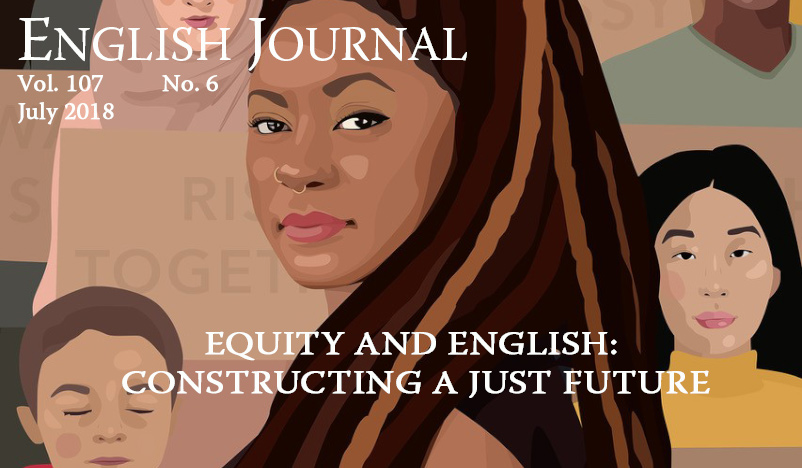This sneak peek comes courtesy of the “From the Editor” column by Julie Gorlewski and David Gorlewski in the July 2018 issue of English Journal.
The purposes of school, and thus of the work of teachers, are a matter of ongoing debate. Do schools exist to promote and perpetuate society, or to change it? Should we reflect existing relations of power and privilege, or are we charged to transform them? At the classroom level, we must decide whether to teach the classics, emphasize young adult literature, or seek a balance of engagement and challenge. Additional curricular considerations involve the extent of technology integration in instruction, interdisciplinarity versus deep disciplinary concentration, collaborative and individual approaches, and how to develop and implement various forms of assessment.
We began our term as editors of EJ with appreciation of the complexities of these tensions, and our interactions with hundreds of authors over the past five years have only intensified that appreciation. Teachers make numerous decisions every day based on theory and experience and on the perceived needs of the young people they know and care about. These decisions yield consequences that may be immediate or may not reveal themselves for years, even decades. Teaching, then, is an act of faith, an act of love, an act of humanity. Teaching is future-oriented, and teachers prepare learners for worlds as yet unimagined. This means that teachers work in today’s world to create more just tomorrows.
Like the purposes of education, this effort is fraught with contradictions. With students, we must investigate bias and privilege, challenge existing hierarchies, and fight injustice. We must explore culturally relevant and sustaining pedagogies and pursue common ground even as we reveal inequities and promote full participation. We must engage in these endeavors with the understanding that some of our students and their families distrust social institutions that have neglected, mistreated, or abused them. We must also acknowledge that the loss of privilege feels like oppression. In other words, addressing issues related to equity and justice is difficult and often painful. Change requires engagement, not disengagement, and engagement can generate conflict. Teachers, as stewards and advocates for the next generation, are on the front lines of such conflict. They must daily choose between engagement, which can feel risky and hard, and disengagement, which can seem peaceful but maintains stasis. We are obliged, however, to resist the status quo and struggle toward justice.
In this issue, authors celebrate this struggle. Illuminating and building on the work of colleagues across space and time, they share successes and disappointments, and stories of how texts and teachers and students intersect to forge connections and create networks to promote change. Articles in this issue highlight how equity and justice can clarify our purposes in complex times.
It has been a tremendous privilege to serve as editors of English Journal. This publication is a collaborative endeavor. We have benefitted from the paths broken by EJ editors who preceded us, and we have been guided by authors to continue to center learners. We are grateful to have served with an incredible team of talented column editors and to have been supported by dedicated associate editors. Many of our issues were strengthened by the visionary contributions of guest editors, to whom we are endlessly indebted. We cannot overstate our appreciation for the extraordinary and expert support of Kurt Austin, Theresa Kay, and Rona Smith. Finally, we wish to thank our reviewers and readers, who act on ideas we simply curate. We are pleased to leave EJ in the care of magnificent incoming editors Toby Emert and R. Joseph Rodríguez. We humbly pass the torch to them.


Julie Gorlewski is associate professor and chair of the Department of Learning and Instruction at the University at Buffalo, State University of New York at Buffalo. A former English teacher, assistant superintendent, and department chair, David Gorlewski is currently clinical assistant professor in Educational Leadership and Policy at the University at Buffalo, State University of New York.

